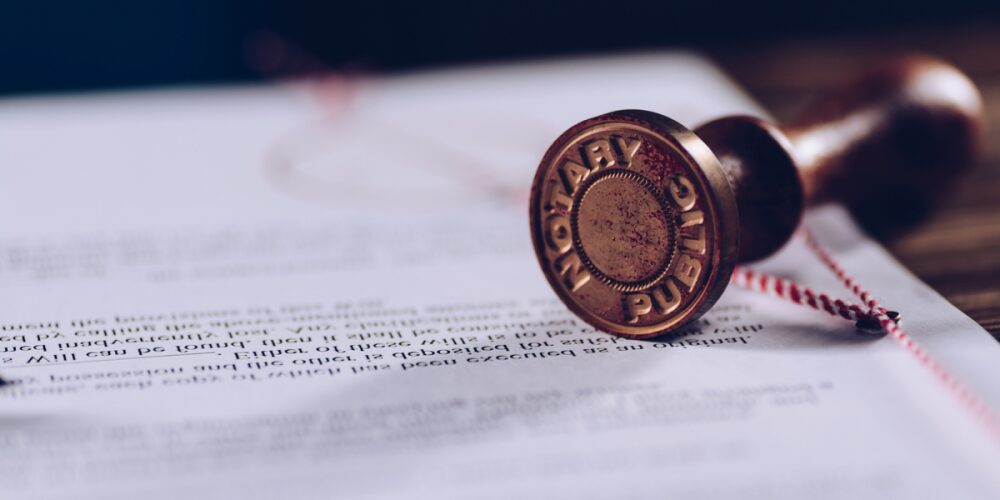
A notary public legalizes the documents meant for producing in court cases and other legal matters. This process of legalizing documents is termed as ‘Notarization’. Do not confuse it with the apostille certificate, because that is something else.
Notarization credential is granted to the document after it is duly signed and stamped by a licensed notary public. For overseas notarization, the countries of involved signatories must have affiliation pact with Hague Apostille Conventions.
Notary public – Why do you need them?

Public Notary is basically a person who is authorized to authenticate the identity and credential of signatories. He or she will have to personally witness and monitor the signing up of the documents by the concerned signatories. The notarization process is deemed legal only after the notary public puts the seal and signs on the document. Lawyers can also be authorized to do the notary job, but notary public without law degrees cannot practice as lawyers.
Every country does not need notarization or Apostille. You can check the laws of the country involved in the deal or transaction. E.g. you purchased a property in another country, so you will need to offer the overseas advocate some authority to handle the acquisition process.
You can offer the overseas advocate power of attorney [POA} as authorization but the POA needs to be signed before a notary public. You can look for a reliable notary public like GKG Notary in London. They will guide you through each and every step that is needed to complete the POA process.
Every notary has an authorized seal engraved with a personal mark. Notarized documents include the authorized signs and seals, which reveal that the information offered in the document is genuine. Therefore notarized documents are recognized to be genuine even overseas. Without the sign and hallmark stamp of a notary public, the document is a paper that is insupportable for any kind of legal matter even in domestic regions.
What kinds of services to expect from a Notary Public?
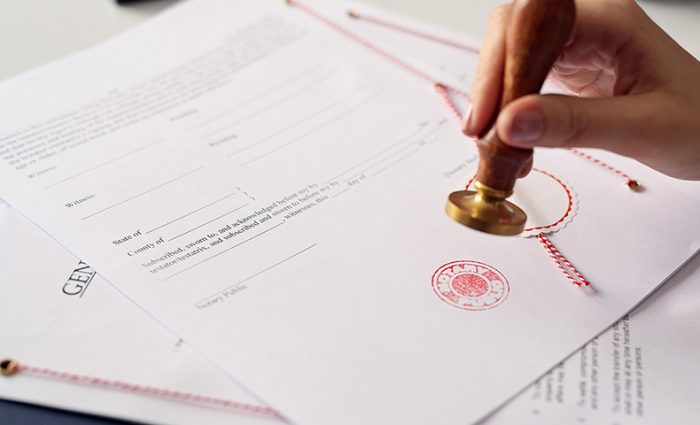
Notary provides an array of services. It includes –
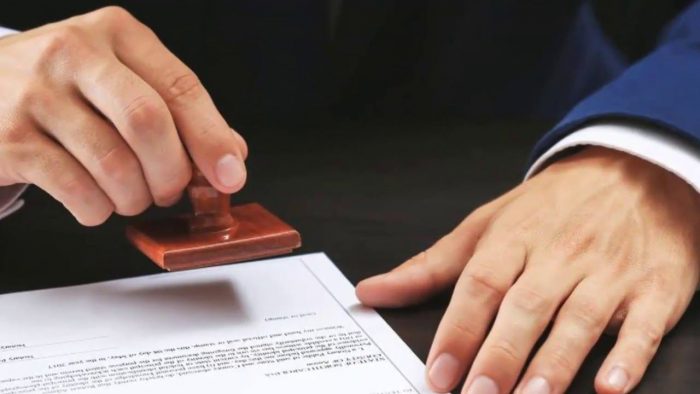
- Document certification or Xerox copy certification
- Transfer property
- Passport copy certification
- Affidavit or statutory declaration
- Power of attorney
- Sell or buy land overseas
- Obtain a duplicate of important documents [if originals get stolen or lost like passport]
- For binding an agreement legally
- Get Apostille certificate or legalization
- Assign domain names, logos, and assign copyrights
- Authorize single status, so the person can marry in a foreign country
What kind of ID is necessary to perform a notarial act?
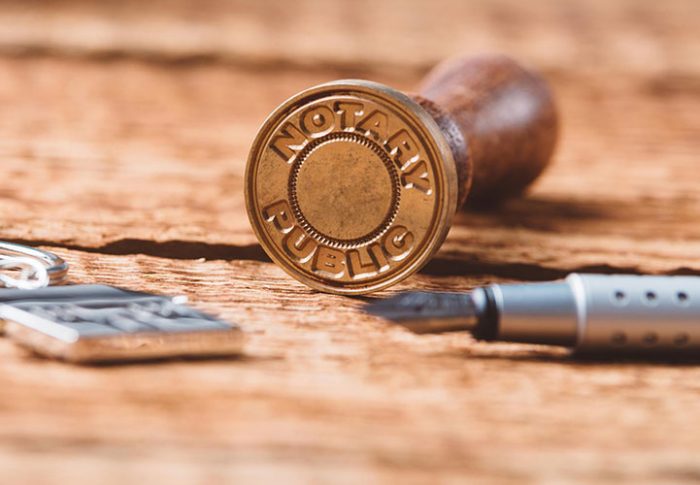
The Money laundering Act got implemented in the year 2007. It defined that notaries must compulsorily store sufficient evidence associated with the ID and address of every client in their files. Filing every document notarized is mandatory. Every client who is involved in the notarial act must offer some form of photo ID during their face-to-face appointment.
- Driving license
- National ID card
- Firearm license
- Passport
- Residence permit
- Any Government issued card
- Benefit book
Besides a photo ID, the client has to even provide their residential proof. It can be in any form like –
- Bank statement
- Rental contract
- Utility bill
- Self-assessment report
Businesses involved will need the following paperwork –
- Company registration copy
- Business incorporation copy
- Partnership agreement copy
- Regulated evidence
Endorsing signatures
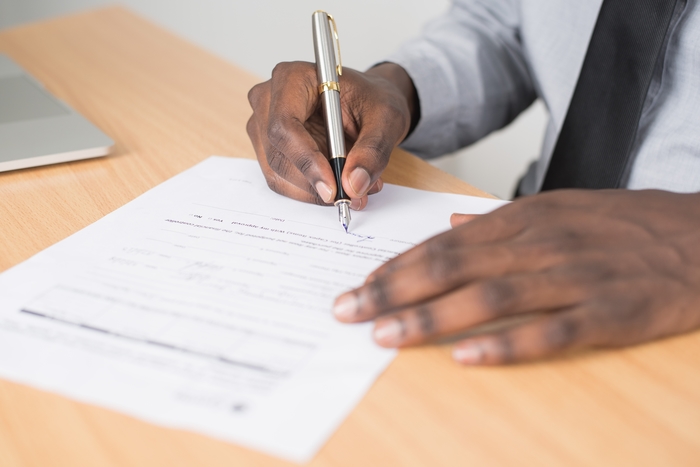
Firstly the notary public will validate the credentials and identity of associated signatories. After the verification process they will have to come together in person to sign the document in his presence. The process is completed when the notary does the signature on the document with his unique notary seal. He will attach it with a certificate, which will include the following.
- Notary public sign
- Date and place where notary process took place
- For some documentation types, the signatories will have to furnish their ID proof documents like driver’s license or passport number. The details of those documents will also be mentioned in the certificate.
The document is validated and the main crucial role of a notary public is accomplished. The document acquires legal authentication, which empowers the customer to submit them and handle the overseas legal matter without any concern.
A notary public is an autonomous officer, so he/she must never do things that compromise their independence. They must stay away from matters that can damage their reputation. They have to follow all the regulations and do the due diligence before approving and stamping documents. They should not be negligent in their work or indulge in corruption, as it could encourage acts of money laundering.
It is incumbent upon the NP to maintain proper records of their works. They will have to furnish the details whenever request by the court or government organization. Even the signatories can ask for more copies if needed, but they will be charged more for the same.
How E-notarization differs from remote notarization?
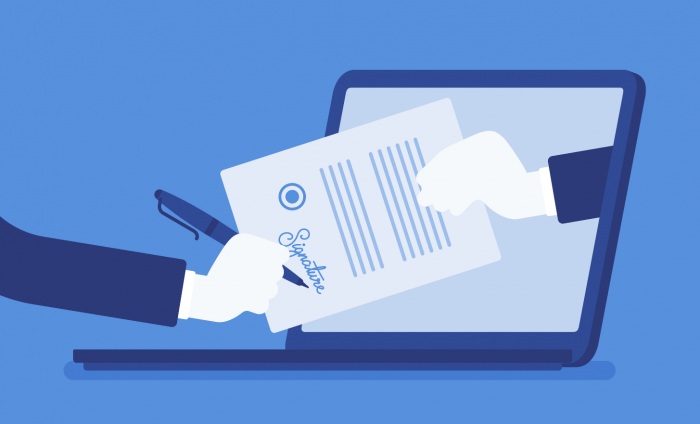
Modern technological development has made it possible for a notary public to offer e-notarization services. An encrypted digital version of the original notary document executed with the involved parties is created. An electronic digital signature is used to seal the notarized document and emailed it to the overseas party.
The E-notarization process is convenient, speedy, safe, and efficient because the overseas company or assistant receives the e-notarized documents promptly. The notarial act is accomplished electronically without using paper but involved parties need to be physically present. An electronic notary does not mean remote notary. Remember, the client has to be present physically along with necessary ID paperwork before the notary public in e-notarization.
In remote or e-notarization, the signer can appear via video and perform a digital signature as opposed to signing physically before the notary public. In remote notarization, the audio/video feed has to be in real-time within a secured environment. The ID verification process in online notarization is also stricter.
Who appoints and regulates the notary public?
In England and Wales, They are appointed by the Master of Faculties. It is a department of the Archbishop of Canterbury. Any person looking for public notary designation will have to carry the liability insurance. They will have to maintain a separate record for the income generated as notary public. The license will be valid for a year, after which they will have to apply for the renewal. It is incumbent upon them to follow the regulations that are laid down for them.








